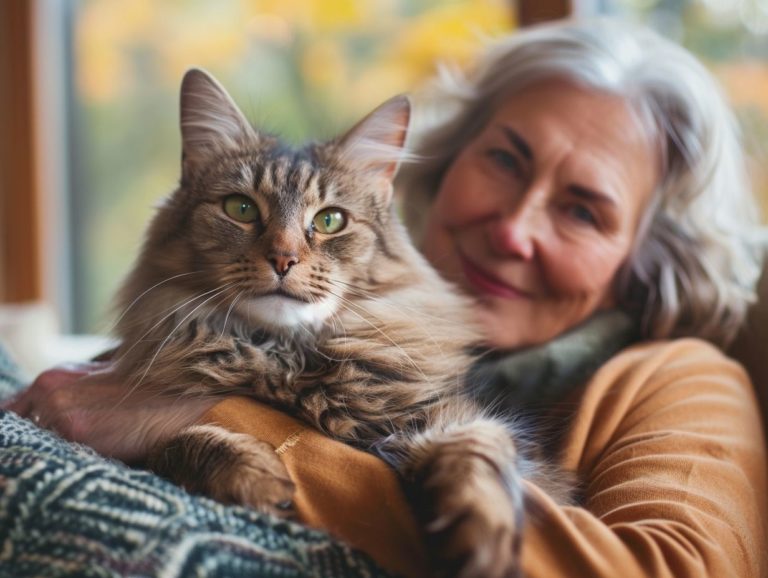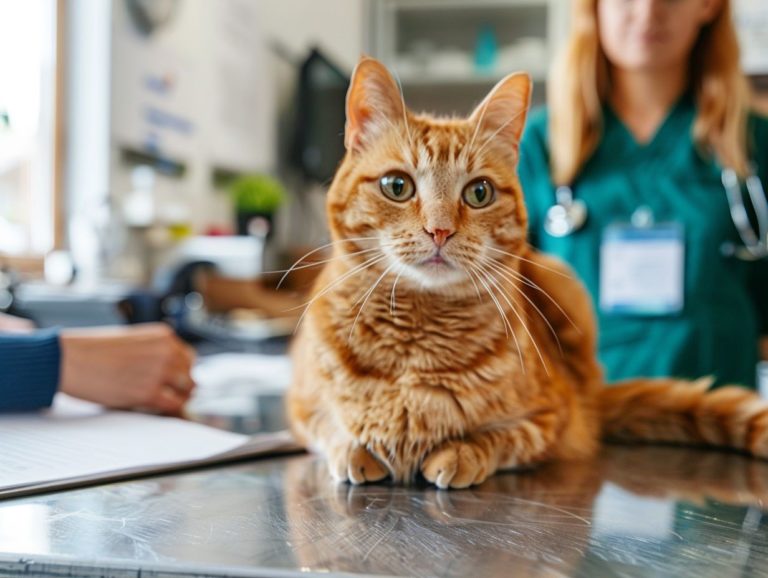Reducing Your Premiums On Senior Cat Insurance
As cats age, it becomes increasingly crucial to have insurance to address any unforeseen health concerns. In this discussion, we will explore the reasons why managing veterinary costs with senior cat insurance is essential for senior cats, the factors influencing insurance premiums for senior cats, and strategies to lower these premiums.
By comparing rates, modifying coverage, and utilizing discounts, senior cat owners can ensure their feline companions receive necessary care at a cost that aligns with their financial plans.
Key Takeaways:
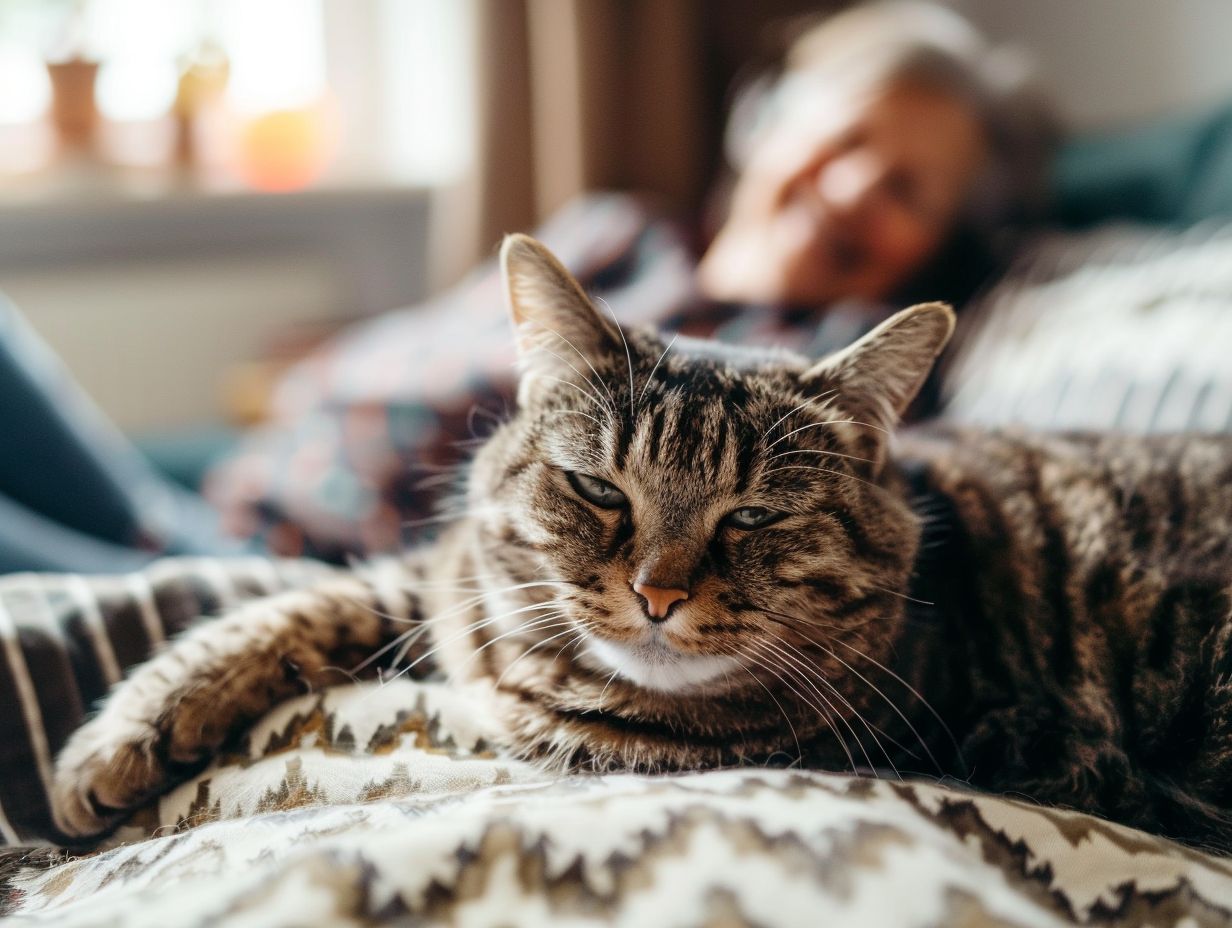
The Importance of Pet Insurance for Senior Cats
Pet insurance for senior cats is essential to ensure they receive proper veterinary care as they age because older cats are prone to developing health issues. With age-appropriate limits and coverage options, this type of pet insurance assists owners of senior cats in avoiding high medical expenses and providing essential care for their pets.
As cats age, they become more susceptible to various age-related conditions such as arthritis, kidney disease, dental issues, and diabetes, which may require frequent veterinary visits for monitoring, medications, or treatments. Pet insurance for senior cats alleviates the financial burden on the owner, enabling them to make healthcare decisions based on what is best for their cat’s health rather than financial constraints.
Regular veterinary care is crucial for effectively monitoring and treating these conditions to uphold the health and quality of life for senior cats.
Why Senior Cats Need Insurance Coverage
Insurance coverage is essential for senior cats due to their increased likelihood of developing health problems, including chronic conditions and hereditary diseases. Having coverage for senior cats offers financial protection and ensures that pet owners have access to the necessary veterinary care to manage their older cats’ health effectively.
As cats age, they often develop chronic conditions like kidney disease, arthritis, and dental problems, which can greatly impact their quality of life. Additionally, hereditary diseases such as heart disease or diabetes may become more prevalent in senior cats. Adequate insurance coverage helps in covering the costs of diagnosing and treating these conditions.
Regular veterinary check-ups and preventive care play a crucial role in early detection and management of health issues, ultimately contributing to prolonging the lifespan and enhancing the quality of life for senior cats.
Factors that Affect Premiums for Senior Cat Insurance
Factors that determine premiums for senior cat insurance include the age of the cat, the health status of the cat, the presence of chronic conditions, and the type of coverage offered by pet insurance companies. Understanding these factors enables pet owners to make informed decisions about insuring their senior cats.
Age is a critical factor in determining senior cat insurance premiums, as older cats are more prone to various health issues and may require more extensive coverage. The cat’s health issues, such as diabetes, arthritis, or kidney disease, can also impact premiums, with pre-existing conditions often leading to higher prices.
Comprehensive coverage for senior cats should encompass preventative care, wellness and routine check-ups, and coverage for chronic conditions to ensure that your cat receives the necessary care.
Age and Health of the Cat
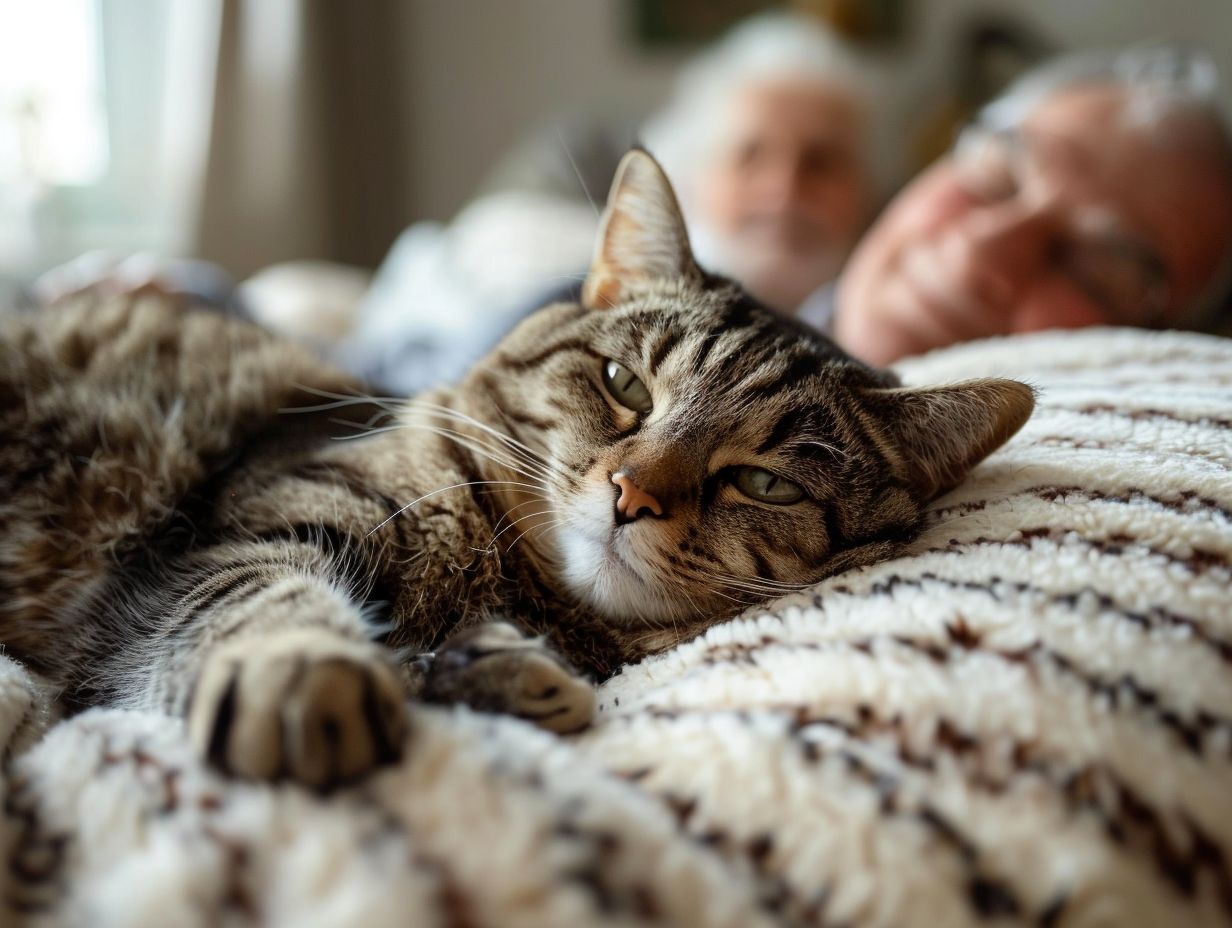
The cost of premiums for senior cats is significantly influenced by their age and health status. Older cats with pre-existing chronic conditions typically face higher premiums due to their increased likelihood of developing medical problems and requiring more extensive veterinary services. Premiums for senior cats generally reflect the elevated risks associated with age and existing health issues.
Chronic conditions such as kidney disease, diabetes, and arthritis are more prevalent in senior cats, further impacting insurance costs. These pre-existing conditions factor into the expense of insuring an elderly cat, as insurers anticipate the need for more frequent and specialized care. To ensure that senior cats receive necessary care without financial barriers, comprehensive coverage is essential, including coverage for chronic conditions.
Location and Type of Coverage
The location of the pet owner and the type of coverage chosen can also determine senior cat insurance premiums. Different policy limits, coverage choices, and geographic factors can influence the total cost of senior cat insurance. For example, pet owners in urban areas may have to pay higher insurance premiums due to the increased risk of accidents or theft.
It is crucial for senior cat owners to select comprehensive coverage, as it often includes a wide range of medical conditions and treatments. Pet owners should be mindful of coverage limits, as high limits can increase premiums, while low limits may not offer adequate protection for an elderly feline. Understanding this aspect can assist pet owners in making informed decisions regarding insurance options for their senior cats.
Ways to Lower Premiums for Senior Cat Insurance
Pet owners can reduce the cost of senior cat insurance premiums by comparing premiums, adjusting coverage and deductible levels to their needs, and taking advantage of discounts and promotions offered by pet insurance companies.
Comparing premiums from multiple insurance companies can help pet owners find the most affordable options for insuring their pets. Reducing coverage options, such as raising the deductible or excluding coverage areas that are not medically necessary for a senior cat’s specific circumstances, can also decrease the overall cost of insurance.
Pet owners can inquire with insurance companies about any discounts available for insuring older cats, such as multi-pet discounts or promotions specifically for senior pets.
Comparison Shopping for the Best Rates
To find the most affordable senior cat insurance, comparison shopping is key as it enables pet owners to consider the high costs of veterinary care that often arise during a cat’s senior years. By exploring different pet insurance providers, pet owners can discover the optimal and most cost-effective coverage for their senior cats.
It is crucial to understand the specific needs of older cats when selecting an insurance plan, especially as age-related health issues may require more frequent veterinary visits. The objective is to ensure comprehensive protection for the cats while still maintaining affordability. It is essential to secure a policy that offers extensive coverage for common senior cat conditions like arthritis, dental problems, and kidney disease to encompass all potential expenses.
Adjusting Coverage and Deductibles
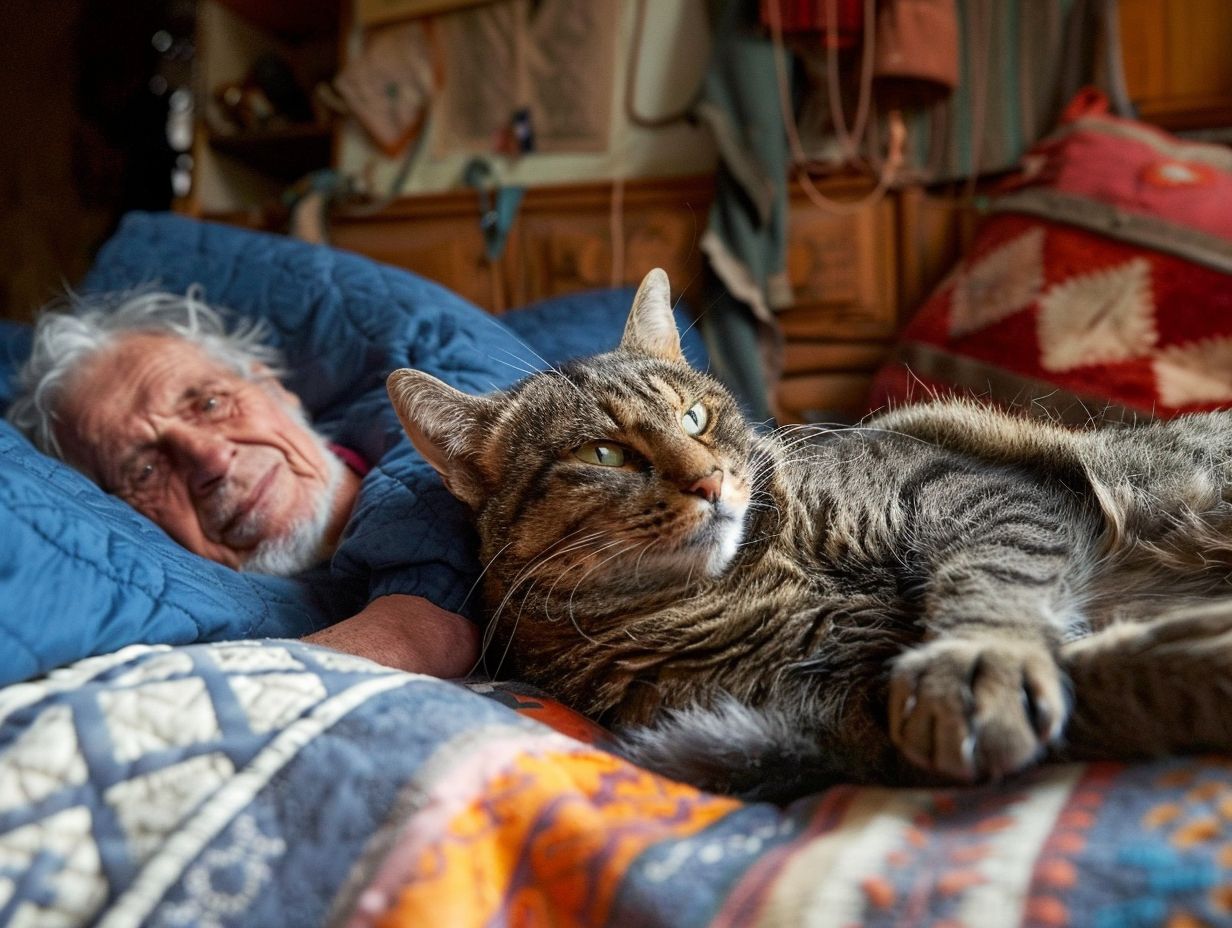
To reduce premiums for senior cat insurance, adjustments can be made to coverage and deductibles to address senior-specific conditions like chronic renal disease. Customizing the insurance plan to cater to specific health requirements can help lower costs while providing adequate coverage for senior cat insurance premiums.
Pet owners should take into account factors such as age-related conditions, decreased mobility, and potential chronic illnesses when tailoring insurance plans for senior cats. Selecting coverage tailored for senior cats and their medical needs can guarantee they receive necessary care without facing high expenses.
Staying informed about new treatments and veterinary care options for senior pets can assist in making informed decisions about insurance coverage and ensuring their well-being.
Utilizing Discounts and Promotions
Discounts and promotions offered by pet insurance companies can assist pet owners in reducing the overall cost of insuring their senior cats, particularly in situations where expensive medical care is necessary. These cost-saving options can alleviate the financial burden associated with caring for aging cat companions.
As cats age, they often develop various health issues that demand costly treatments and frequent visits to the veterinarian, both of which can accumulate substantial medical expenses. Discounts and promotions can help alleviate these costs, ensuring that pet owners can afford to provide healthcare to their senior cats without straining their budgets.
Actively seeking cost-effective insurance options can provide pet owners with peace of mind and financial stability in managing the healthcare needs of their aging cat companions.
Frequently Asked Questions
How can I reduce my premiums on senior cat insurance?
You can reduce your premiums by selecting a higher deductible, choosing a plan with lower coverage limits, or enrolling in a senior cat wellness program offered by your insurance provider.
What is a deductible and how does it affect my premiums?

A deductible is the amount you are responsible for paying before your insurance coverage kicks in. A higher deductible typically results in lower premiums, but you will have to pay more out of pocket in case of a claim.
Are there any discounts available for senior cat insurance?
Yes, some insurance providers offer discounts for insuring multiple pets, enrolling in automatic payments, or for being a member of certain organizations. It’s worth asking your provider about any potential discounts.
Can I change my coverage limits to lower my premiums?
Yes, you can adjust your coverage limits to reduce your premiums. However, it’s important to make sure you have enough coverage to protect your senior cat’s health and well-being.
What is a senior cat wellness program and how can it help reduce my premiums?
A senior cat wellness program typically covers routine and preventive care, such as vaccinations, dental cleanings, and annual check-ups. By enrolling in this type of program, you can reduce your out-of-pocket expenses and potentially lower your premiums.
What should I consider when choosing a senior cat insurance policy?
When choosing a policy, it’s important to consider your cat’s age, breed, and any pre-existing conditions. You should also look at the coverage options, deductibles, and premiums to find the best fit for your budget and your senior cat’s needs.

